Research Committee
 The Research Committee members meet twice a year to review and discuss workshop applications. The committee evaluates the scientific value of the workshops, the urgency of the topic and the appropriateness of the participants. With their work, they ensure a high-quality workshop and advise the Executive Committee on the selection of applications for ENMC workshops.
The Research Committee members meet twice a year to review and discuss workshop applications. The committee evaluates the scientific value of the workshops, the urgency of the topic and the appropriateness of the participants. With their work, they ensure a high-quality workshop and advise the Executive Committee on the selection of applications for ENMC workshops.
The Chair of the ENMC Research Committee:
Prof. Rosaline Quinlivan, Research Director
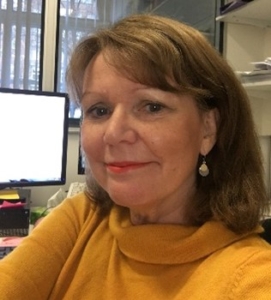
Ros Quinlivan graduated in Psychology and Medicine from University College London. Following training in Paediatrics, she was appointed the first neuromuscular research fellow at Guy’s and St Thomas’ Hospitals (Kings College London) working across paediatric and adult departments. Her postgraduate MD research evaluated Positron Emission Tomography as a potential diagnostic tool for dystrophic cardiomyopathy. Currently, she is Professor of Neuromuscular Disease at the National Hospital for Neurology and Neurosurgery, UCL Institute of Neurology, Queen Square, London, where she leads on transition and managing young adults with neuromuscular disease. She developed and leads the Neuromuscular Complex Care Centre (NMCCC), a facility designed to provide co-ordinated multi-disciplinary care for patients in an accessible environment during one hospital visit. She leads the UK Adult DMD Clinical North Star Network (funded by Muscular Dystrophy, UK) and led the development of published UK care guidelines. She leads a large nationally commissioned service for people with McArdle disease and related disorders (which includes disorders causing acute rhabdomyolysis). She has led and participated in many ENMC workshops and collaborates widely both Nationally and Internationally. She has been Principal Investigator for clinical trials for DMD, BMD, McArdle disease and Congenital Myopathies. She chairs the London and South-East Coast Strategic Neuromuscular Network and she was chair of the British Myology Society. She was joint co-ordinating editor for Cochrane Neuromuscular Disease.
As Research Director of ENMC, Ros Quinlivan chairs the Research Committee and supports the Executive Committee in defining and implementing ENMC’s scientific policy together with the team in Baarn.
Our current members are:
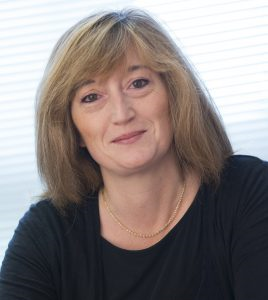
Dr Ana Buj Bello is research director at INSERM and head of the Gene-based Therapies for Congenital Myopathies team at the UMR-S 951, Genethon, France. She received her degree in Medicine and Surgery from the University of Lleida, Spain, and a PhD in Neurosciences from the University of St Andrews, UK. She also obtained a diploma in Myology from the University of Pierre et Marie Curie, France. Having done a post-doctorate at the « Institut de Génétique et Biologie Moléculaire et Cellulaire » (IGBMC), France, she joined the INSERM in 2004 and has worked at Genethon since 2009. Her research activities focus on developing AAV-based gene therapies for neuromuscular disorders, in particular congenital myopathies, with a major interest in clinical translation. Her pioneering work on gene replacement therapy for myotubular myopathy has led to the initiation of a clinical trial in patients. She is member of the MTM and CNM Patient Registry Steering Committee.
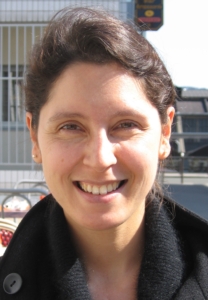
Prof. Kristl Claeys (MD, PhD) is a senior neurologist at the Department of Neurology and Neuromuscular Reference Center (NMRC) at University Hospitals Leuven and is assigned as Professor at the Department of Neurosciences, KU Leuven, Belgium. At KU Leuven, Prof. Claeys is heading the Laboratory for Muscle Diseases and Neuropathies. Her research topics are clinical research including muscle MRI and biomarkers in diverse hereditary and acquired neuromuscular disorders. She has a special interest in translational medicine in neuromuscular disorders.
Kristl Claeys is an author on almost 250 publications in international peer-reviewed journals and wrote several book chapters, on diverse topics in the field of neuromuscular disorders. She is Principal Investigator of a large number of academic research studies and international clinical trials. Kristl Claeys is Board member of the European Reference Network for rare neuromuscular diseases (ERN EURO-NMD).
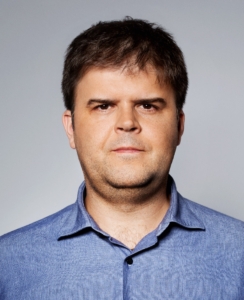
Prof. Edgar Gomes is Professor at the Faculty of Medicine of the University of Lisbon and group leader at the Instituto de Medicina Molecular (iMM), Lisbon, Portugal. He is a biochemist by training and performed his PhD on cell biology in Coimbra, Portugal. Thereafter, he did his post-doc at the University of Columbia, NY, USA. In 2007, at the Institute of Myology, Paris, France, Edgar set up his own research group and became a Director of Research. Since 2014, he is heading a lab at iMM, where they are interested in how the cell architecture of skeletal muscle cells works, such as they studied for central core myopathies. Mechanisms of nuclear movement during cell migration and skeletal muscle formation are being studied and what is the role for nuclear positioning in skeletal muscle formation is main topic of research. Recently he became a Professor of Histology and Developmental Biology at the Faculty of Medicine, where he works closely with Hospital Santa Maria, the main hospital in Lisbon, at the edge of diagnostics and therapeutics.
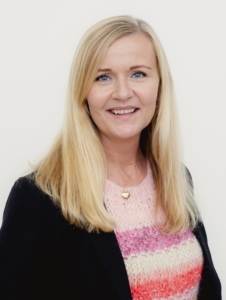
Prof. Charlotte Handberg is a professor at the National Rehabilitation Center for Neuromuscular Diseases (RCFM) in Aarhus, Denmark and at the Department of Public Health at Aarhus University, Denmark. RCFM a national highly specialized private hospital that offers lifelong rehabilitation under the National Board of Health. Charlotte Handberg has done research within rehabilitation since 2007 and has been engaged in teaching and leadership for many years. She is the author of many peer-reveiwed articles and book chapters and has various PhD and master’s students. Charlotte Handberg is principal investigator of various research projects – often conducted in collaboration with the university hospitals in Denmark and abroad. Currently she’s leading or supervising studies on Duchennes muscular dystrophy (DMD), spinal muscular atrophy (SMA), myotonic dystrophy type 1 (DM1), amyotrophic lateral sclerosis (ALS), Charcot-Marie-Tooth disease (CMT), and myestenia gravis (MG). Additionally, generic projects on neuromuscular diseases on educational choices, telepresence robots for educational support for children and living with personal assistance. She is deputy chair in the Danish Research network for neurology Nurses, member of European Academy of Nursing Science (EANS), the Danish Society for Public Health and former board member of DASYS Research council. Charlotte Handberg has been a member of European Reference Network for neuromuscular diseases ERN EURO-NMD as an alternate to Aarhus University Hospital since 2023.
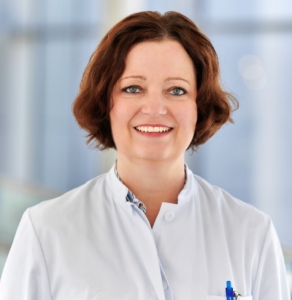
Prof. Dr. med. Cornelia Kornblum is a Clinical Neurologist and heads the Department of Neuromuscular Disorders, Center for Neurology, University Hospital Bonn, Germany. The Department runs a neuromuscular clinical trial unit for adult patients and a Neuromuscular Laboratory. Cornelia received her MD from the University Medical School of Bonn in 1999 and specialised in neurology in 2003. Thereafter, she worked as a postdoctoral fellow at the Department of Epileptology and the Life & Brain Center in Bonn, studying mitochondrial genetics. Since 2006, she has been a Senior Neurologist and Head of the Neuromuscular Group of the University Hospital of Bonn. In 2008, she qualified as a university lecturer and received the venia legendi for clinical neurology for her thesis on mitochondrial disorders. She was appointed Associate Professor of Neurology in 2014. Cornelia’s clinical interests include metabolic myopathies, mitochondrial disorders and myotonic dystrophies. Currently her research focuses on the clinical, genetic, myopathological and brain imaging characterisation of hereditary multisystemic neuromuscular diseases affecting the central nervous system. She is a member of several national and international scientific societies and spokesperson for the Center for Rare Diseases Bonn. Since 2017, she has been a member of EURO-NMD.
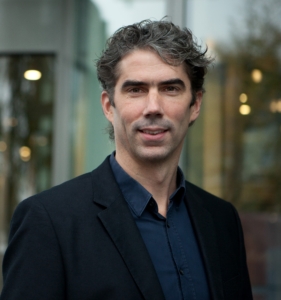
Prof. Coen Ottenheijm studies the pathophysiology of acquired and inherited muscle disease at the Department of Physiology at Amsterdam UMC in the Netherlands. He is a board member of the Dutch Center for Neuromuscular Diseases (Spierziekten Centrum Nederland), the Dutch Society for Physiology, and the European Society for Muscle Research. His research group focuses on the role of sarcomere proteins in the development of muscle dysfunction.
In 2006, he obtained his PhD at the Radboud UMC in Nijmegen, the Netherlands, where he studied the role of sarcomere dysfunction in diaphragm weakness in patients with chronic obstructive pulmonary disease. After postdoctoral research at the University of Arizona (USA), in 2010 he started his research group at the department of Physiology at Amsterdam UMC, focusing on better understanding the role of nebulin and other sarcomere proteins in myopathies. His work has been funded by NWO VENI, VIDI, and VICI grants, the Princess Beatrix Muscle Foundation, as well as by EU and NIH grants.
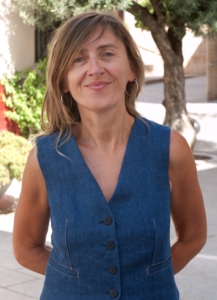
Dr Carmen Paradas, MD
Carmen Paradas leads the Neuromuscular Disorders Unit at Hospital Universitario Virgen del Rocío/Biomedicine Institute of Sevilla, designated as member of the European Reference Network in Neuromuscular disorders and ALS (ERN EURO-NMD). Her group is as deeply committed to the diagnosis and multidisciplinary care of this type of patients as to the understanding of pathogenic mechanisms underlying the neuromuscular disorders. They have described mutations in novel genes associated to different muscle diseases, describing novel proteins involved in myopathies and the underlying pathogenic mechanisms. She participates in the generation of standardized protocols for both, the performance of techniques in the field of peripheral nervous system research and the management of patients, through guides of clinical practice, standards of care, and expert committees. She participates in and coordinates natural history studies and clinical trials in neuromuscular disorders.
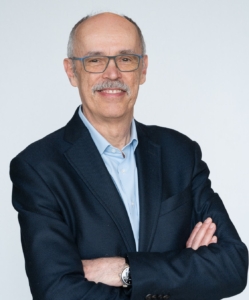
Dr Davide Pareyson, MD
Davide Pareyson is a Clinical Neurologist working at the Fondazione IRCCS Istituto Neurologico C.Besta (FINCB) of Milan, Italy, where he is currently Head of the Rare Neurological Diseases Unit and of the Functional Department of Neurodegenerative and Rare Neurological Diseases. He received his degree as MD and trainee as a neurologist from the Milan University and as a clinical neurophysiologist from the Pavia University.
His main interest is clinical research on inherited neurological disorders, with special reference to hereditary and acquired peripheral neuropathies and motor neuronopathies. He performed studies on phenotype-genotype correlation, clinical findings, electrophysiology, neuropathology of hereditary neuropathies (particularly Charcot-Marie-Tooth disease – CMT – and related neuropathies, but also amyloid neuropathy) and other neurogenetic disorders including spinal and bulbar muscle atrophy (SBMA). During the last years, he has been working on the development of outcome measures for hereditary neuropathies and other rare diseases and has coordinated and participated in clinical trials and natural history studies in inherited and acquired neuropathies.

Prof. Giorgio Tasca is a Professor of Neuromuscular Science at John Walton Muscular Dystrophy Research Centre, Newcastle Hospitals NHS Foundation Trusts in Newcastle in the UK. Until 2022, he was a neurologist at the Fondazione Policlinico Universitario “A. Gemelli” IRCCS in Rome. He received his residency in Neurology in 2011 and completed a PhD in Neuroscience in 2014 at the Catholic University School of Medicine in Rome. In 2012-2013, he was research fellow at the Folkhälsan Institute of Genetics, Helsinki and at the Neuromuscular Research Center, Tampere University, Finland, under the supervision of Prof. Bjarne Udd, and later at the Unit of Neuromuscular and Neurodegenerative Disorders of the Bambino Gesù Children’s Research Hospital, Rome, until 2015. His primary areas of research in neuromuscular disorders include muscle imaging in different adult onset and congenital myopathies and muscular dystrophies, and the study of the molecular mechanisms underlying Facioscapulohumeral muscular dystrophy (FSHD). He is vice-chair of the Neuromuscular Imaging group of the Euro-NMD project (European Reference Network).
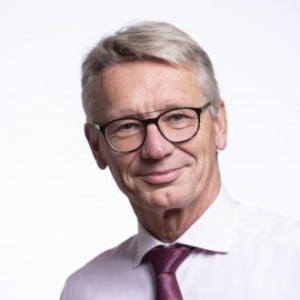 Prof. Markus Weber is Professor of Neurology at the University of Basel and serves as chief of the Neuromuscular Diseases Unit/ ALS Clinic at the Kantonsspital St.Gallen in Switzerland. He received his medical degree from the University of Bonn in Germany and Diploma in Clinical Neurology from the University of London, Queen Square. Following completion of his residency at various academic hospitals in Germany and a neuromuscular fellowship at the University of British Columbia in Vancouver , Canada (1997-2000) he founded the Neuromuscular Diseases Center/ALS Clinic in St.Gallen Switzerland and the ALS Clinic at the University of Basel. His main research interest is in the field of amyotrophic lateral sclerosis and motor neuron disorders and covers outcome measures, clinical neurophysiology, trial design and cannabinoid research. His work was crucial in developing a motor unit estimation technique called MUNIX as a biomarker for ALS clinical trials. His team has conducted numerous phase I to III clinical trials. In collaboration with the ETH Zürich the first cannabinoid typ 2 radioligand has been developed, which is now available for clinical studies. Prof. Weber has participated in several EU-funded projects (JPND, eRare) and has received numerous grants from national funding bodies and various foundations. He has also served on many scientific advisory boards for various biotech companies. Prof. Weber is a member of the ENCALS executive committee and co-chair of the European Academy of Neurology scientific panel on ALS and FTD.
Prof. Markus Weber is Professor of Neurology at the University of Basel and serves as chief of the Neuromuscular Diseases Unit/ ALS Clinic at the Kantonsspital St.Gallen in Switzerland. He received his medical degree from the University of Bonn in Germany and Diploma in Clinical Neurology from the University of London, Queen Square. Following completion of his residency at various academic hospitals in Germany and a neuromuscular fellowship at the University of British Columbia in Vancouver , Canada (1997-2000) he founded the Neuromuscular Diseases Center/ALS Clinic in St.Gallen Switzerland and the ALS Clinic at the University of Basel. His main research interest is in the field of amyotrophic lateral sclerosis and motor neuron disorders and covers outcome measures, clinical neurophysiology, trial design and cannabinoid research. His work was crucial in developing a motor unit estimation technique called MUNIX as a biomarker for ALS clinical trials. His team has conducted numerous phase I to III clinical trials. In collaboration with the ETH Zürich the first cannabinoid typ 2 radioligand has been developed, which is now available for clinical studies. Prof. Weber has participated in several EU-funded projects (JPND, eRare) and has received numerous grants from national funding bodies and various foundations. He has also served on many scientific advisory boards for various biotech companies. Prof. Weber is a member of the ENCALS executive committee and co-chair of the European Academy of Neurology scientific panel on ALS and FTD.
